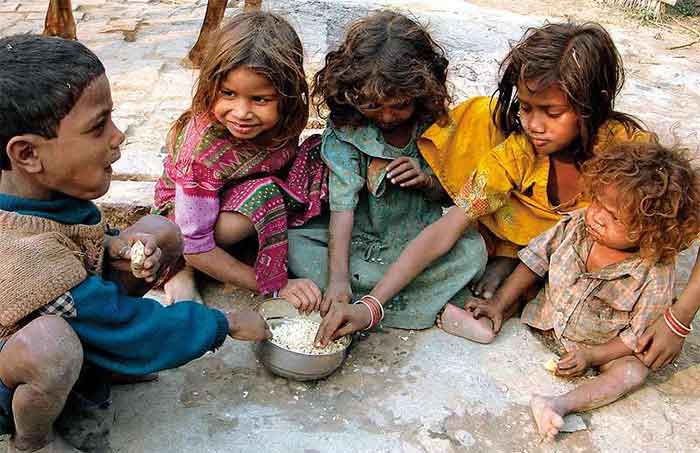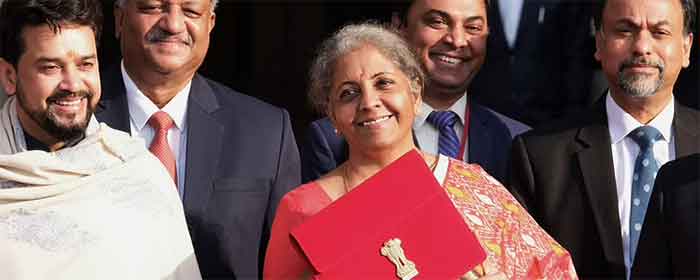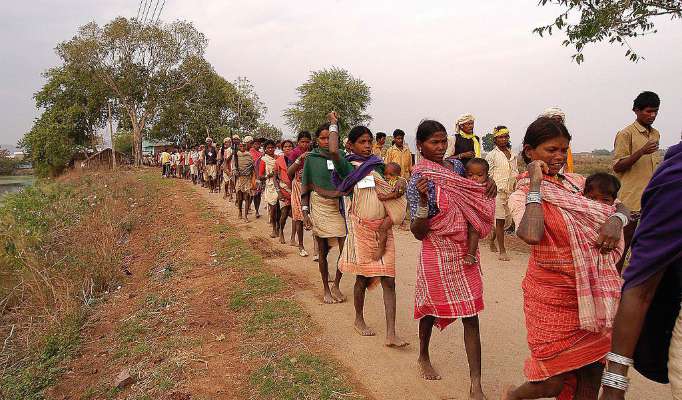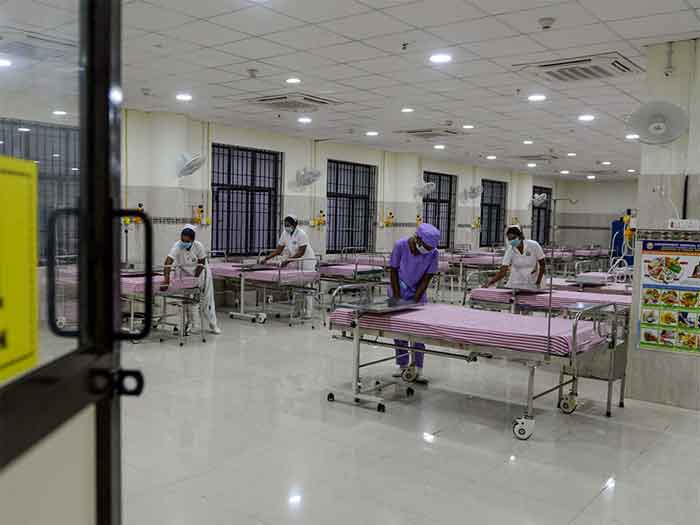
The Right to Food Campaign is dismayed to see that, at this time of deep crisis the Union Budget 2022-23 has actually reduced the government spending on the social sector by a huge extent. The negative impact of the economic crisis that began even before the pandemic led to disruption has fallen disproportionately on those at the bottom of the pyramid. Multiple reports and surveys capture the intense distress among the poor and marginalised sections of society exacerbated due to the pandemic and ensuing restrictions and further slowdown of the economy. In this context, spending on social protection schemes such as the PDS, anganwadis, pensions and MGNREGA became especially important.
What was required therefore was to continue the additional food grains under PMGKAY and in fact expand the PDS to include non-ration card holders as well as to distribute pulses and oils. However, the budget has actually reduced the food subsidy allocation by over ₹80,000 crores. The ₹2.06 lakh crore that has been allocated is barely enough to meet the requirements of the regular entitlements under the National Food Security Act. The PMGKAY has currently been announced for up to March 2022, and from the budget it does not seem like there is any intention of extending this.
Even MGNREGA which directly provides employment and also helps create rural assets has been short shrifted by this budget. Despite over ₹21,000 crores of pending wages, the allocation under MGNREGA is only 73,000 crore, while in 2020-21 the spending under the schemes was over 1.1 lakh crore.
Women and children have once again been ignored although they have been most affected by the pandemic. Schools and anganwadis have remained closed almost throughout the two year period and this has led to not only learning losses but children and women losing out on the important nutritional support that they get through these schemes. Although there were some provisions for food security allowance and dry rations, these were mostly irregular, of very low amounts and just not enough to make up for the missed meals. Now as schools and anganwadis reopen, they will have to make extra efforts to bring back children and help them make up for the lost time. This would require much more funds for these schemes, which have traditionally been underfunded. However, the allocations for saksham anganwadi, samarthya (including maternity entitlements), PM POSHAN (mid day meals) have remained the same or even reduced in real terms (see table 1 in the attachment).
Just as people were trying to recover from the economic and health shocks of the second wave of the pandemic, there has been the third wave. While this has been milder in terms of the severity of the infection, it has once again impacted people’s livelihoods as a result of the curfews, night/weekend lockdowns, closure of public places and so on. According to the Oxfam inequality report 84% households reported reduced incomes during the pandemic period in India, while the wealth of the 142 billionaires doubled. Many field studies, including those conducted by the Right to Food campaign over the last two years have shown that the quantity and quality of people’s diets has reduced drastically post the pandemic. PDS and the additional food grains under PMGKAY were a lifeline for people who possess ration cards.
To meet the basic constitutional obligations of any democratically elected government, as well as towards a more equitable growth path, we demand that the government rethink the dismal allocations that have been made for these various social sector provisions. We also urge that the members of the Opposition parties raise these issues and speak up for the poor and informal sector workers during the discussions on the Budget in the Parliament. In the pre-budget media discussions even some of the corporate giants were advocating for increasing spending on NREGA and also thinking of some urban employment schemes so that the problem of demand could be addressed. With unutilised capacities and lack of purchasing power, what is required now is to put money in the hands of those who spend on consumption, which is not the super-rich rather the wage earners. The Right to Food Campaign therefore demands:
● Universalisation of the Public Distribution System to give subsidised rations to everyone who demands it. To begin with the quotas under the NFSA can be immediately expanded on the basis of the population projections for 2022 to include all vulnerable persons especially migrants workers, homeless, sex workers, trans people and all vulnerable communities even without ration cards. Redetermining the state wise quotas in light of the increase in population since the 2011 census has also been directed by the Supreme Court in the migrant workers case.
● Expansion of the PDS to provide millets and other nutritious commodities such as pulses and oil while procuring these at the Minimum Support Price (MSP)
● Extension of the Pradhan Mantri Garib Kalyan Anna Yojana till such time that the pandemic continues, with the provision of edible oil and pulses to each household.
● Ensure immediate implementation of the June 29th, 2021 order of the Supreme Court, in In Re: Problems and Miseries of Migrant Workers (Suo Motu WP(C) 06/2020), wherein the Court directed that dry rations should be provided to all migrant workers being non ration card holders and that community kitchens should be opened to provide cooked food to people in need.
● Hot cooked meals under ICDS and midday meals should be revived immediately. The budgets for these programmes should make adequate provisions for inclusion of eggs and nutrient dense diet in the meals. Hot cooked meals should extend to children under three years of age through crèches and to pregnant and lactating women through community kitchens.
● Maternity entitlements should be universalized and made unconditional. The amount of benefit should be increased to at least ₹6,000 per child, as per the provisions of NFSA. 6. Central government contribution for social security pensions should increase at least to ₹2,000.
● Revive National Family Benefit Scheme (NFBS) by increasing its budget and a big increase in the emergency assistance (initially Rs. 10,000 raised to Rs. 20,000 in 2012) is also required which is long overdue. Benefits should be raised to nearly Rs.1 lakh as per the initial intention to peg 80 per cent of India’s per capita GDP under NFBS benefits. The functioning of NFBS should be made transparent and simplified without delays.
● Child care services must be expanded through making adequate budgetary provisions for anganwadi-cum-creches, expansion of the National Creche scheme, creches under the NREGA and so on.
● Allocation for NREGA should be increased to provide at least 200 days of work per year to all rural households seeking employment, at least at the statutory minimum wage. Current issue of payment delay across the country should be resolved with an increase in budget.
● Wages of all workers providing care work, such as Anganwadi Workers and Helpers, ASHAs, should be enhanced and decent working conditions for them ensured. Sincerely, Gangaram Paikra, Aysha, Kavita Srivastava, Dipa Sinha, Anuradha Talwar, Mukta Srivastava, Amrita Johri (On behalf of the Right to Food campaign
Sincerely, Gangaram Paikra, Aysha, Kavita Srivastava, Dipa Sinha, Anuradha Talwar, Mukta Srivastava, Amrita Johri
(On behalf of the Right to Food campaign)














































